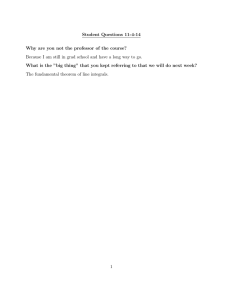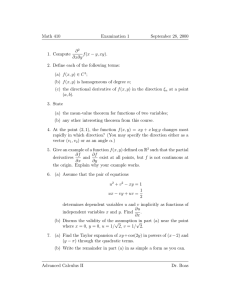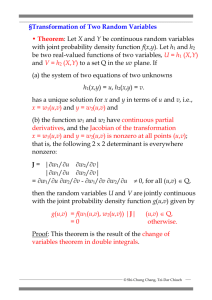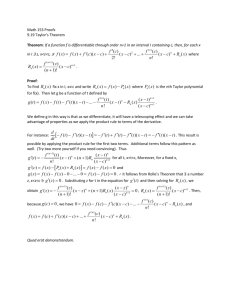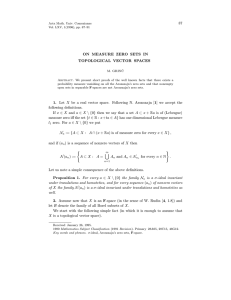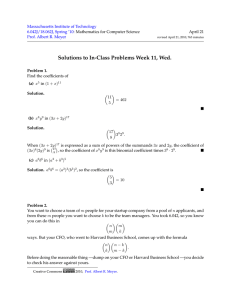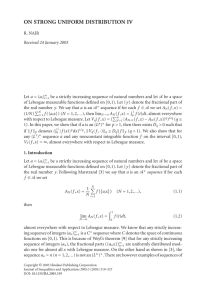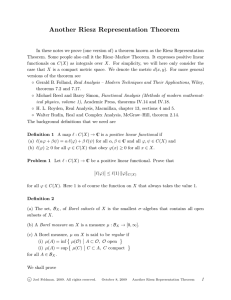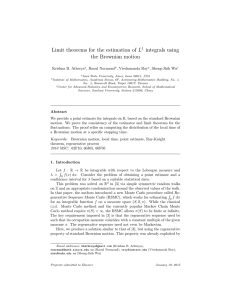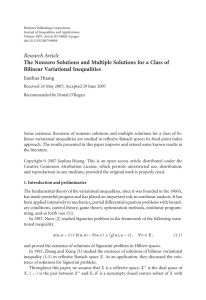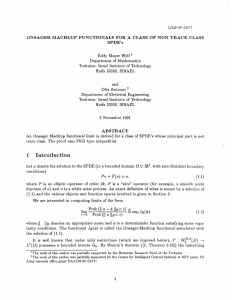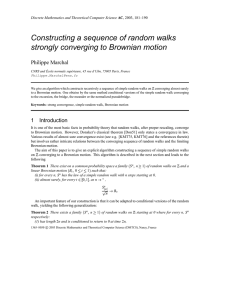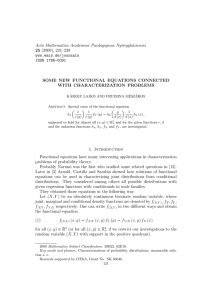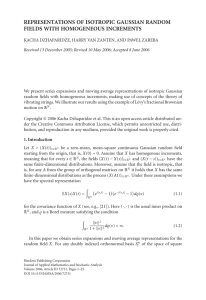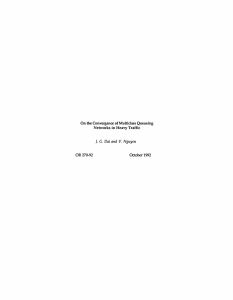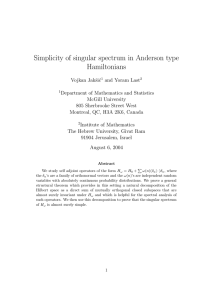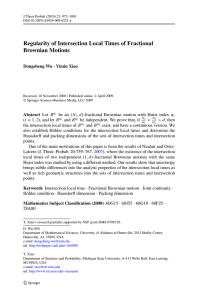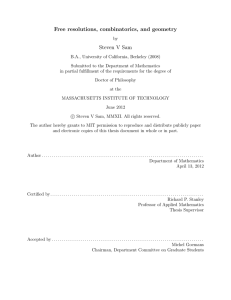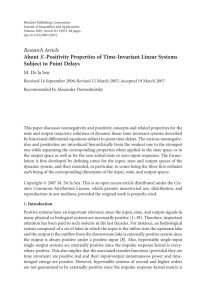In the statement of Theorem 1.1, the word “complete” should... {x ∈ ∂B :
advertisement
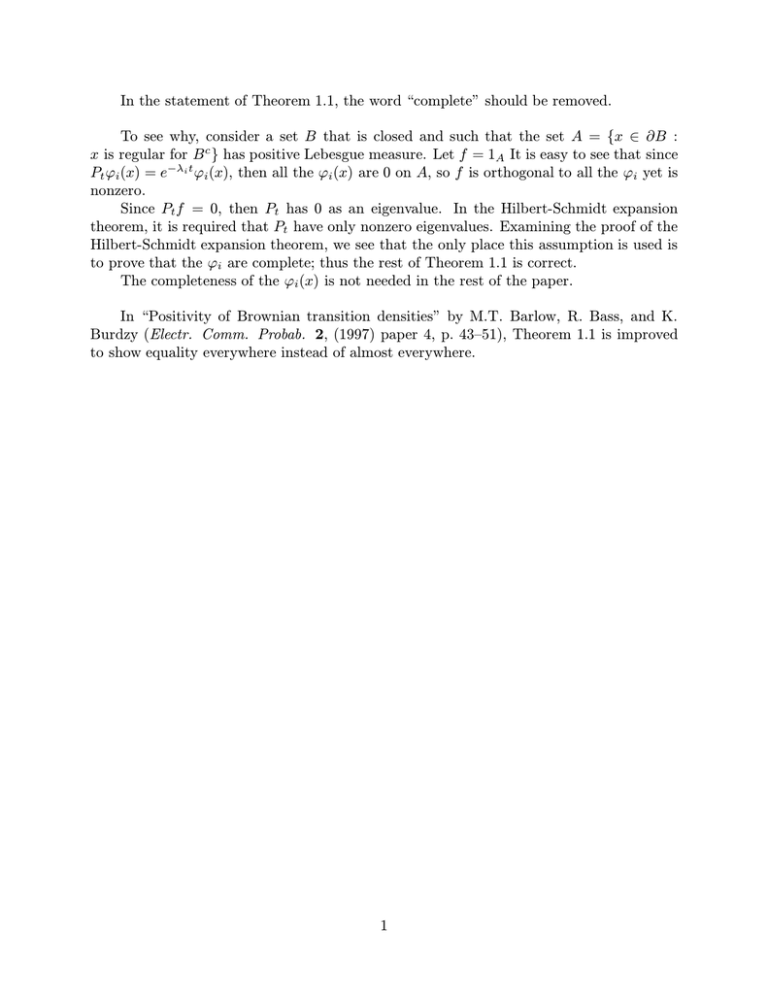
In the statement of Theorem 1.1, the word “complete” should be removed.
To see why, consider a set B that is closed and such that the set A = {x ∈ ∂B :
x is regular for B c } has positive Lebesgue measure. Let f = 1A It is easy to see that since
Pt ϕi (x) = e−λi t ϕi (x), then all the ϕi (x) are 0 on A, so f is orthogonal to all the ϕi yet is
nonzero.
Since Pt f = 0, then Pt has 0 as an eigenvalue. In the Hilbert-Schmidt expansion
theorem, it is required that Pt have only nonzero eigenvalues. Examining the proof of the
Hilbert-Schmidt expansion theorem, we see that the only place this assumption is used is
to prove that the ϕi are complete; thus the rest of Theorem 1.1 is correct.
The completeness of the ϕi (x) is not needed in the rest of the paper.
In “Positivity of Brownian transition densities” by M.T. Barlow, R. Bass, and K.
Burdzy (Electr. Comm. Probab. 2, (1997) paper 4, p. 43–51), Theorem 1.1 is improved
to show equality everywhere instead of almost everywhere.
1

